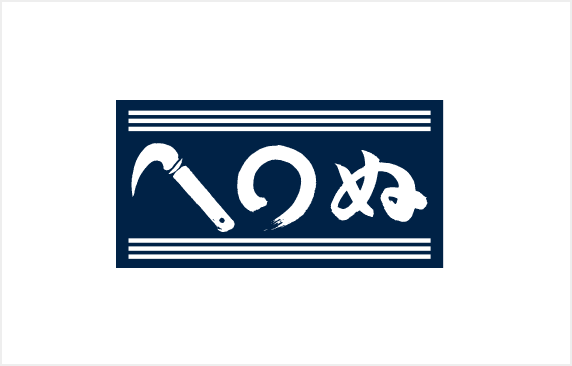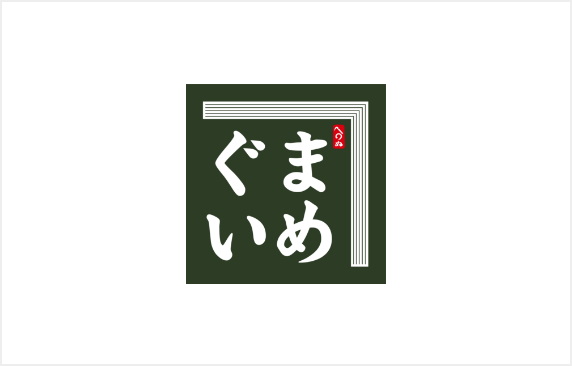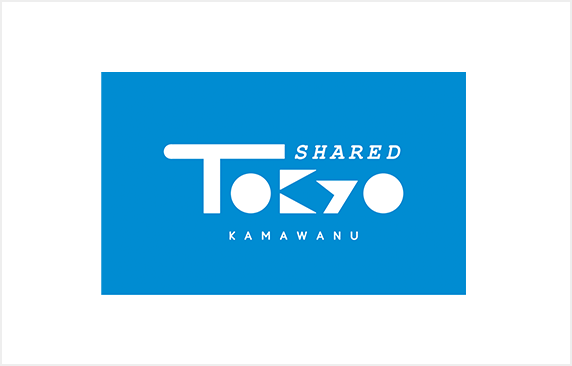Tenugui cloth has been part of Japanese life since the Heian Period.
It has been used to dry one’s hands or face, to wrap an item with or for cleaning.
It was even used as a fashion accessory in the Edo Period.
It is a typically-Japanese item with versatile applications.
The appeals of Tenugui include
the way it becomes softer as you use and wash it repeatedly, and
the vast variety of colors and patterns it comes in.
It is a daily commodity and an understated piece of traditional handicraft, used in daily life.
The “Chusen” dyeing technique pours dye onto cloth so that it is seeped all the way through.
It is Japan’s unique technique, established and spread in the Meiji Period.
Since each strand of cotton is dyed all the way through, the finished cloth does not harden, achieving excellent absorbency and quick-drying property.
The resulting patterns have no front or back, making the cloth reversible.
It is a perfect dyeing technique for Tenugui.
This technique is a manual process, handled by craftsmen. Weather and humidity in the air affects the finish.
Years of experience allow craftsmen to adjust dyes and the thickness of starchy paste according to the day’s temperature and weather.
The result is individually unique pieces of cloth,
presenting a look and feel that could only be achieved with delicate craftsmanship in harmony with nature.
The longer you use Tenugui, the softer its texture becomes,
and the more settled all the dyed colors start to look.
Similarly to denim, Tenugui can be molded into your lifestyle.



Each traditional Japanese pattern has its meaning or reflects people’s wishes.
These patterns feature seasonal motifs such as cherry blossom, hydrangea, goldfish or autumnal colored leaves.
“Hemp leaf” pattern reflects a wish for a child’s healthy growth, inspired by the way hemp plants grow fast.
Seigaiha ("wave crest" pattern) depicts indefinite expanses of waves, symbolizing the desire for tranquility.
Tenugui features auspicious motifs that have been loved in Japan for generations.
KAMAWANU’s Tenugui also uses original designs.
We design fresh patterns in the hope that they will be loved for the next 100 years to form a new “tradition.”


Tenugui’s usage is not limited to wiping moisture from a surface.
It can be wrapped around your head or neck, or shredded into strips to be used in some repair work.
It is also great with wrapping an item.
Since the days of the Nara Period, Japanese people have used paper or cloth to wrap something precious in.
“Wrapping” represents our desire to handle something with great care.
Tenugui is so versatile it can be used to wrap a lunch box, a gift or even a bottle of wine or Japanese sake.
It is not only versatile but also eco-friendly.
Why not choose a Tenugui pattern and a wrapping style to suit each occasion?

“KAMAWANU” is a company that produces products based on its philosophy to “revisit the old to create a new way of playfulness.”
It offers the “KAMAWANU” brand of miscellaneous Japanese homewares, as well as the “Mamegui” brand of giftware, such as sweets, tea and small interior goods, wrapped in a mini-sized Tenugui of your choice.
“SHARED TOKYO” is the company’s third brand, producing merchandizes under the theme of various Tokyo towns including Shibuya, Ueno, Akihabara and Ginza, created out of the desire to share the appeals of “Tokyo,” the city we live and work in.
“KAMAWANU,” “Mamegui” and “SHARED TOKYO” are like three siblings who look completely different.
Built on the common characteristic of “playfulness,” the three brands produce products according to their respective brand concepts.


